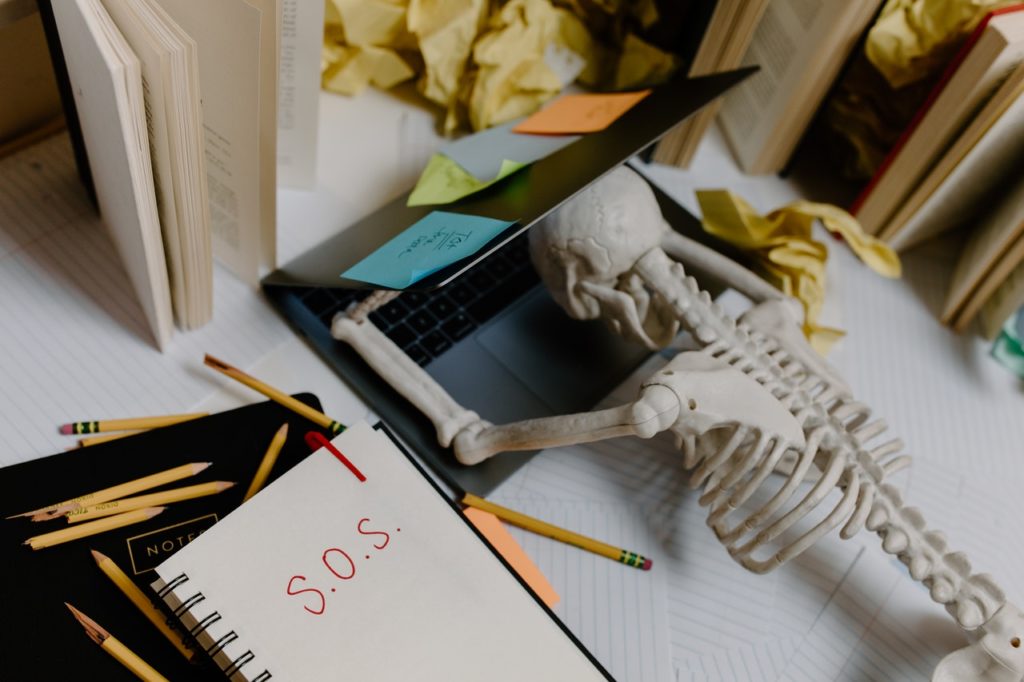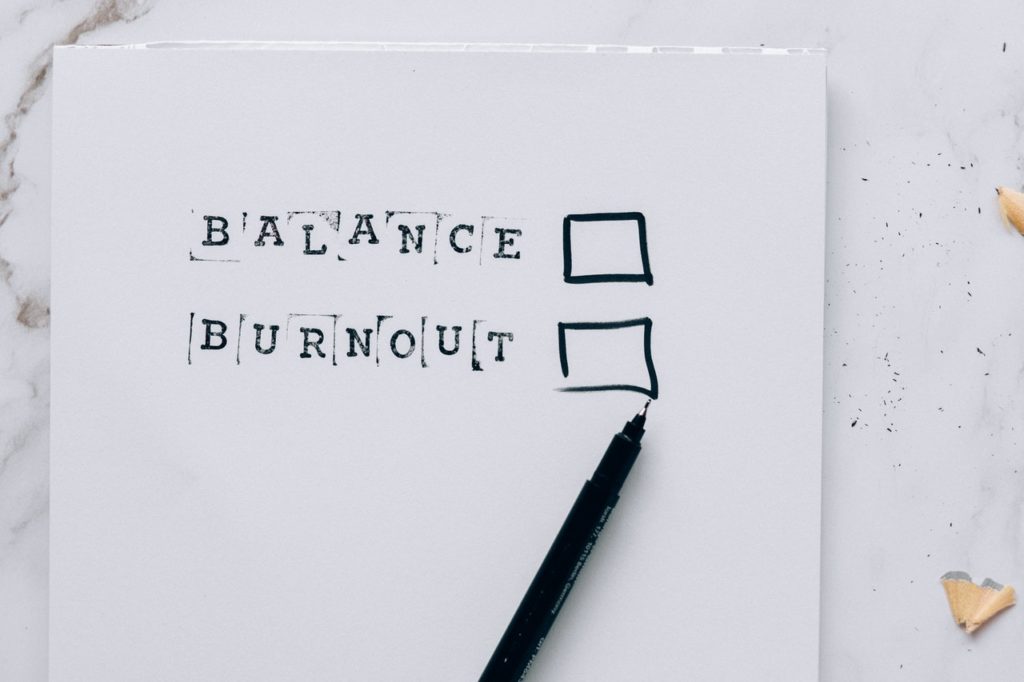Let’s talk about what is burnout and how to avoid it
Have you ever felt exhausted after completing your work shift, and then tried convincing yourself that “stress comes with the job”? Short-term situations may be easy to manage – you can bounce back immediately after a nice dinner and good rest.
But if this exhaustion has been going on for weeks, you might be burning out. In other words, your work stress has become unmanageable and it is affecting your life outside of work.

Understanding Burnout
While you may relate burnout with depression, it is not an official medical condition or mental illness. Only the symptoms behave similarly, so the main way to differentiate between the two is by finding the root cause of the symptoms. These common signs include:
- Insomnia and hypersomnia
- Undereating and overeating
- Lashing out at others
- Regular headaches and migraines
- Lack of concentration

Am I Burned Out?
Here are some signs associated with burnout that may apply to you:
- Chronic Exhaustion: Have you been working to the point that you loathe the thought of doing your job?
- Being Self-Critical: Do you feel worried that your output is not as excellent as you want it to be?
- Cynical Attitude: Do you catch yourself being unmotivated or irritable when it comes to working and completing your tasks?
- Life Imbalance: Do you feel like your professional life has dominated your personal life and that you don’t have time for friends, family, or hobbies?
- Feelings of Uselessness: Have you thought that nothing you do in your job really matters?
You may be heading toward burnout or are already there if one or more of these signs are relevant to you.

How to Avoid Burnout
Avoiding burnout involves making a lot of active and conscious life decisions. You may have to set aside some time out of your day outside of work to layout your current lifestyle. This strategy allows you to zoom out of your life a bit and identify any harmful habits. Then, you can stop and correct them to live a life from a new perspective. Here are some more specific tactics to try and adopt:
Schedule Your Day
Creating a balance between your work life and personal life can help you avoid burning out. Fill up your calendar or a notebook with your daily tasks. Seeing the things that you need to accomplish on a list could help you focus on the most important responsibilities.
This tactic also may help you get into a routine that suits your lifestyle. Outside of your workplace responsibilities, you can figure out what other aspects of your life fit into your schedule.
Take Breaks
Does your workplace allot break time within the day? Take it without hesitation. We understand that people tend to feel guilty when taking time off of work, especially when their duties involve intense pressure. Still, breaks are necessary regardless of your position.
If you have convinced yourself that you must work yourself to exhaustion because of your important responsibilities, try thinking of breaks as things you deserve to take instead. You make every working minute count, so you have earned time off to recharge.
Or, if that doesn’t work for you, you can also reframe breaks as a necessity. If you’re stressed, you aren’t going to work as well as you would if you’re relaxed. You’re going to feel flustered and exhausted.
While it’s easy to think that burnout is making you more productive, it is actually doing the opposite, which is why it’s important to recognize it as a lie.
Reward Yourself
Avoid burnout by celebrating your workplace victories, no matter the size. After a job well done, consider treating yourself to your favorite snack on your break or going to the theater for the weekend. You deserve to indulge in something you enjoy after spending an entire week or month channeling physical and mental energy into your tasks.
Offload Stress
As mentioned, burnout is linked to unmanageable stress. Because of this, having a healthy outlet to offload your work stress may help with avoiding burnout. Consider talking to a loved one whom you trust enough to be there for you if you need to vent.
It may also be helpful if you have a friend in a similar line of work so you know you are speaking to someone who can empathize. Just be sure to get their permission to offload your stress because not everyone will immediately be ready to process another’s feelings.
Establish Limits
Set your boundaries when it comes to your job. Take some time to reflect on your tasks and determine the elements that you find acceptable and those that cross certain lines.
Your limits may be rooted in the effort it takes for you to accomplish certain tasks, or they could be rooted in your morals. In the end, how you feel about your work will dictate whether you will get burnt out or not.

Conclusion
Burnout is a phenomenon associated with work stress that has become too hard to manage. Some signs of burning out include feeling cynical toward your job and getting exhausted just thinking about going to work.
Avoiding burnout involves reflection and making conscious adjustments to your life. If you relate to any of the symptoms we discussed above, consider addressing them immediately and take the necessary steps to balance your work and personal life.
Also check out: How to make an Emergency Fund







0 Comments